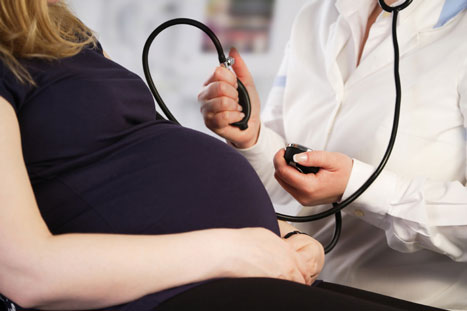THE first fruits of the ‘DANIÈLE HERMANN-COEURS DE FEMMES’ research program
Daniel Vaiman a has developed a transgenic female mouse model as part of his research. He aims to identify the mechanisms behind the increase over the long-term of the incidence of cardiovascular illnesses in women who suffered from pre-eclampsia, aided by a detailed study of the physiology of this mouse model.
During an interview at the start of 2017, Daniel Vaiman was very excited about how his research was progressing ‘We have a ‘stock’ of mice which were pregnant 4 months ago, as part of another part of the project. We can analyze these mice now, which will give us some preliminary data on the effects of pre-eclampsia. At the same time, we’ll start mating mice at the end of January. This is an integral part of the early stages of this research project. We’ll then monitor the health of the pregnant mice using ultrasounds of the placental blood flows, as well as studying arterial blood pressure during pregnancy and proteinuria. A second-year Master’s student has been recruited for this program. They will work under my supervision, using a small animal imaging facility. If all goes as hoped, we should see some initial results in a few months, in other words, well before the end of the program.’
← Previous newsNext news →




